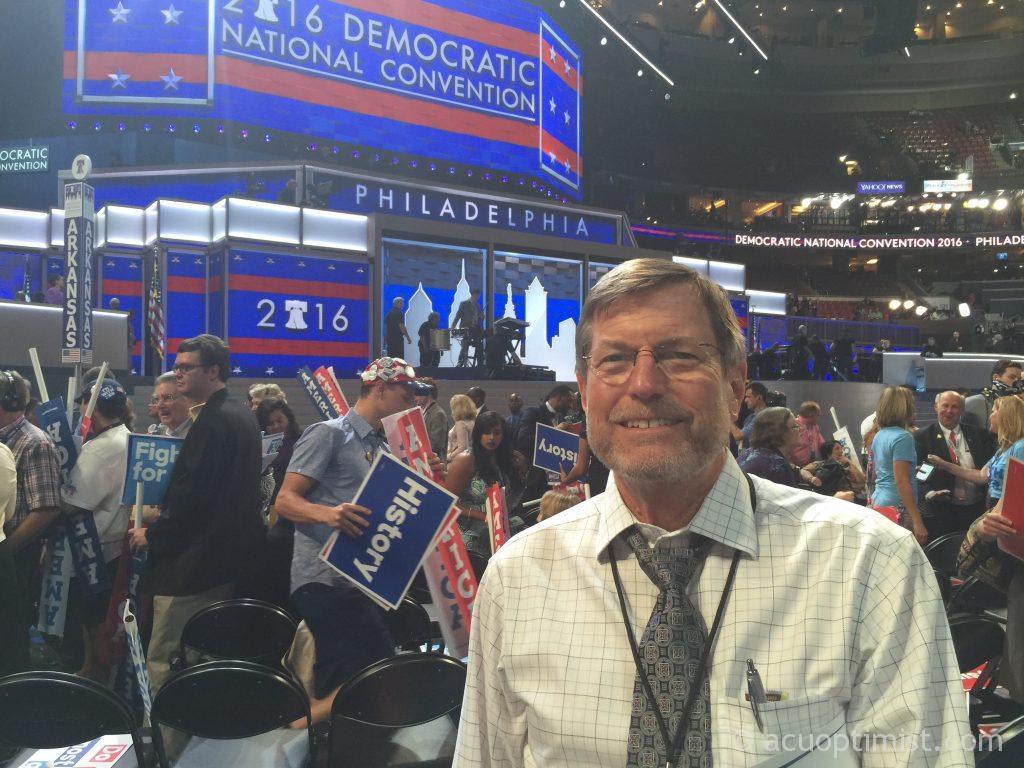Dr. David Dillman worked at the Democratic National Convention this summer for the ninth time since 1980.
Dillman, professor in the political science department and director of the Jack Pope Fellows Program, worked as a “speaker tracker” for four days.
Before the convention started, Dillman was familiarized with the event schedule, the arena and his contacts, who are the speakers he had been assigned to. Once he made contact with the speakers, he arranged a time to get them into the arena a couple days before their speech so he could show them around the arena and they could practice their speech.
“We are kind of responsible for trying to make that speech a success,” said Dillman. “There are speech coaches, makeup artists and speech writers.”
On the day of the speeches, Dillman said he met with the speakers and took them backstage. Backstage, he said they would “go through a process of rehearsal, but usually it’s going into a holding room, then to makeup room and then going into a green room, which is supposedly a quiet room so they can think and be calm.”
Dillman helped the speakers to the podium to deliver the speech then guided them to their next destination.
“The tension is making sure you do your job, and it can be quite stressful,” said Dillman.
The first person Dillman tracked was Jeffrey Merkley, U.S. Senator from Oregon, who mailed Dillman a handwritten card just this week. He also tracked congresswoman Joyce Beatty, from Ohio, Steve Benjamin, the mayor of Columbia, South Carolina and Gabriel Salguero, a reverend from Florida.
On the walls and bookshelves of Dillman’s office, located on the third floor of Hardin Administration building, are many photos, some signed, of various politicians he has met over the course of his life.
At past Democratic National Conventions, Dillman has met politicians such as U.S. Representative of Georgia, Congressman John Lewis, Minority Leader of the United States House of Representatives, Nancy Pelosi, President Bill Clinton and many others.
“You get see people that you see on TV, and sometimes you might have the chance to talk to them,” said Dillman. “The biggest joy for me was chatting briefly and shaking John Lewis’s hand. That was a lot of fun.”
On whether conventions are important to the political process or not, Dillman said, “Many political scientists do not see them as important to the political process, but whether one agrees with it or not, conventions provide a place for corporate interests to interact with people who will make decisions that impact them, and it energizes political activists to get out to work for the party’s nominee.”

